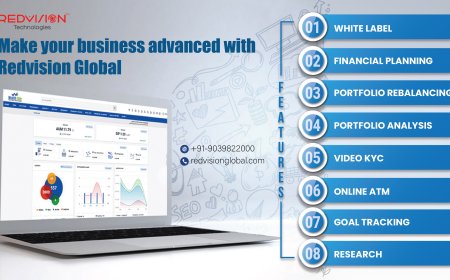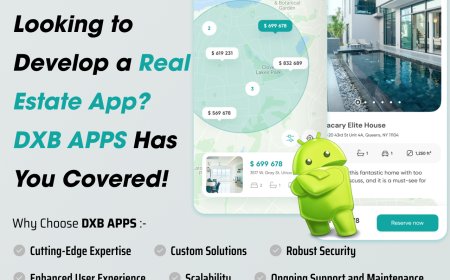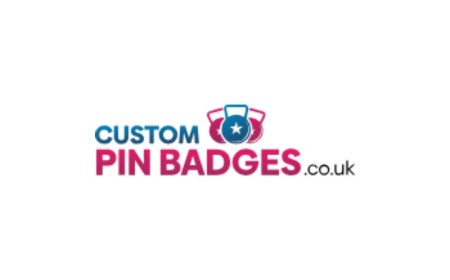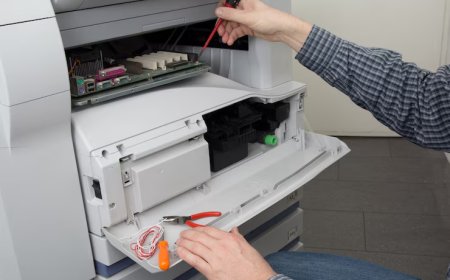How to Hunt Jobs in Columbus Washington Healthcare
How to Hunt Jobs in Columbus, Washington Healthcare The healthcare industry in Columbus, Washington, is a dynamic and rapidly expanding sector that offers diverse career opportunities for professionals at every level—from clinical staff and administrative specialists to technical and support roles. While Columbus is a smaller city compared to major metropolitan hubs, its healthcare ecosystem is ro
How to Hunt Jobs in Columbus, Washington Healthcare
The healthcare industry in Columbus, Washington, is a dynamic and rapidly expanding sector that offers diverse career opportunities for professionals at every level—from clinical staff and administrative specialists to technical and support roles. While Columbus is a smaller city compared to major metropolitan hubs, its healthcare ecosystem is robust, anchored by regional medical centers, outpatient clinics, long-term care facilities, and home health agencies serving both urban and rural populations. For job seekers, navigating this landscape requires more than just submitting resumes; it demands strategic planning, local insight, and a deep understanding of the regional job market. This comprehensive guide walks you through every step of hunting healthcare jobs in Columbus, Washington, offering actionable advice, proven best practices, essential tools, real-world examples, and answers to frequently asked questions. Whether you're a recent graduate, a licensed professional relocating to the area, or someone seeking a career pivot into healthcare, this tutorial equips you with the knowledge to land a meaningful and sustainable position in one of the most vital industries in the region.
Step-by-Step Guide
Step 1: Understand the Healthcare Landscape in Columbus, Washington
Before you begin applying for jobs, invest time in learning who the major employers are and what types of roles they typically hire for. Columbus, Washington, is part of the broader Pacific Northwest healthcare network, with strong ties to regional systems like Providence Health & Services, Kaiser Permanente, and local independent providers. The city benefits from proximity to larger medical centers in nearby cities like Olympia and Tacoma, which often serve as referral hubs. Key healthcare institutions in and around Columbus include:
- Columbus Community Hospital
- South Sound Medical Group
- EvergreenHealth Partners (satellite clinics)
- Skilled nursing and rehabilitation centers such as Brookdale Senior Living and Amedisys Home Health
- Private dental, behavioral health, and physical therapy practices
Each of these entities hires a mix of clinical and non-clinical roles. Clinical positions include registered nurses (RNs), licensed practical nurses (LPNs), medical assistants, physical therapists, radiology technicians, and pharmacists. Non-clinical roles span medical billing and coding, health information management, patient services coordinators, and administrative assistants. Understanding which roles are in highest demand helps you tailor your job search and prioritize applications accordingly.
Step 2: Assess Your Qualifications and Identify Gaps
Healthcare roles are highly regulated and often require specific certifications, licenses, or educational credentials. Begin by listing all your qualifications: degrees, certifications (e.g., CNA, RN, CPR, ACLS), state licenses, and relevant work experience. Then, compare them against job postings you find online. Are you missing a required certification? Is your experience aligned with the most common job descriptions? For example, many hospital systems in the region now require RNs to hold a Bachelor of Science in Nursing (BSN), and some clinics prefer candidates with electronic health record (EHR) experience, particularly with Epic or Cerner systems.
If gaps exist, identify affordable and accessible ways to fill them. Local community colleges such as Olympic College or South Seattle College offer accelerated certification programs in medical assisting, phlebotomy, or medical coding. Online platforms like Coursera and Udemy provide low-cost courses in EHR navigation, HIPAA compliance, and healthcare ethics. Completing even one additional credential can significantly increase your competitiveness.
Step 3: Build a Healthcare-Specific Resume
A generic resume won’t stand out in the healthcare field. Your resume must reflect precision, compliance awareness, and patient-centered outcomes. Start with a clear professional summary that highlights your role, years of experience, and key strengths. For example:
“Dedicated Registered Nurse with 5+ years of experience in acute care settings, specializing in telemetry and patient education. Proven track record in reducing readmission rates by 22% through coordinated discharge planning and follow-up protocols. Proficient in Epic EHR, HIPAA compliance, and interdisciplinary team collaboration.”
Under work experience, use action verbs and quantify results wherever possible. Instead of saying “Assisted patients,” say “Provided direct care to 10–12 patients per shift in a 32-bed medical-surgical unit, maintaining a 98% patient satisfaction score over 12 months.” Include relevant technical skills such as IV insertion, wound care, vital signs monitoring, or EHR systems. List certifications prominently—employers scan for these first.
Remove irrelevant jobs from your past unless they demonstrate transferable skills like leadership, customer service, or time management. Tailor each resume to the specific job description by mirroring keywords from the posting—this improves your chances of passing applicant tracking systems (ATS).
Step 4: Optimize Your Online Presence
Many healthcare employers in Columbus conduct preliminary screenings through LinkedIn and professional directories. Ensure your LinkedIn profile is complete and professional. Use a high-quality headshot, write a compelling headline (e.g., “Licensed Practical Nurse | Skilled in Geriatric Care | Seeking Opportunities in Columbus, WA”), and detail your experience using the same keywords from your resume.
Join local healthcare groups on LinkedIn such as “Healthcare Professionals of Western Washington” or “Columbus Medical Network.” Engage with posts, share relevant articles, and comment thoughtfully to increase your visibility. Avoid personal photos, political content, or unprofessional language on public profiles. Employers may review your social media accounts, so clean up any public content that could raise concerns.
Consider creating a simple personal website or portfolio using platforms like WordPress or Canva. Include your resume, certifications, a brief bio, and even a short video introduction (optional but impactful). This demonstrates initiative and professionalism beyond the standard application.
Step 5: Network Strategically Within the Local Community
Networking is one of the most effective—but often overlooked—ways to find healthcare jobs in Columbus. Many positions are filled through internal referrals before being publicly advertised. Attend local healthcare events, job fairs, and continuing education workshops. The Columbus Chamber of Commerce often hosts networking mixers for healthcare professionals. Check with the Washington State Nurses Association or the Washington State Medical Association for upcoming regional meetings.
Reach out to alumni from your educational program who now work in Columbus. A simple message like, “Hi, I’m a recent graduate from [School] and am exploring opportunities in Columbus. I’d appreciate 10 minutes of your time to learn about your experience working in the area” can open doors. Most professionals are willing to help, especially in a tight-knit community.
Volunteering at local clinics, senior centers, or health fairs is another powerful way to build connections and gain exposure. It also demonstrates commitment to community health—a trait highly valued by employers in the region.
Step 6: Apply Through the Right Channels
Not all job boards are created equal. While Indeed and Glassdoor are useful, prioritize direct applications through employer websites. Hospitals and large clinics often post openings on their own career portals first and give preference to internal applicants. Set up job alerts on the websites of Columbus-area employers like Columbus Community Hospital, South Sound Medical Group, and EvergreenHealth.
Also, register with local staffing agencies that specialize in healthcare placements. Agencies like MedPro Staffing, Aureus Medical, and Cross Country Healthcare frequently place nurses, therapists, and medical assistants in temporary, contract, and permanent roles across the region. These agencies can provide guidance on local pay rates, interview tips, and even help with licensing verification.
Don’t overlook state job boards. The Washington State Department of Labor & Industries maintains a public job portal where healthcare employers post openings, including state-funded positions in public health and rural clinics. Visit lni.wa.gov and search for “healthcare” in the job listings.
Step 7: Prepare for the Interview Process
Healthcare interviews often follow a structured format, including behavioral questions, scenario-based assessments, and sometimes skills demonstrations. Be ready to answer questions like:
- “Describe a time you handled a difficult patient or family member.”
- “How do you prioritize tasks during a high-acuity shift?”
- “What steps do you take to ensure patient safety and infection control?”
Use the STAR method (Situation, Task, Action, Result) to structure your responses. Practice aloud with a friend or record yourself. Dress professionally—even for virtual interviews. Bring extra copies of your resume, license, and certifications. If the role involves direct patient care, be prepared to demonstrate clinical skills if asked (e.g., drawing blood, checking vitals).
Research the organization thoroughly. Know their mission statement, recent community initiatives, and any public accolades or challenges. Mentioning something specific like, “I read about your recent partnership with the county to expand mental health outreach, and I’m excited about the opportunity to contribute to that work,” shows genuine interest and preparation.
Step 8: Follow Up and Negotiate Offers
Always send a personalized thank-you email within 24 hours of your interview. Reference something specific from the conversation to reinforce your connection. For example: “Thank you for sharing your insights about the new telehealth initiative—I’d welcome the chance to support its implementation with my experience in remote patient monitoring.”
If you receive an offer, review it carefully. Consider not just salary, but benefits like health insurance, retirement matching, tuition reimbursement, paid time off, and shift differentials. In Columbus, many employers offer sign-on bonuses for hard-to-fill roles like ICU nurses or radiology techs. Don’t be afraid to negotiate respectfully. Use data from sources like the Bureau of Labor Statistics or PayScale to justify your request.
If you’re not offered a position, politely ask for feedback. Many hiring managers are willing to provide constructive advice that can help you improve for future applications.
Best Practices
Consistency Over Quantity
Applying to 50 jobs in one week with generic applications is less effective than submitting 10 highly tailored applications. Quality trumps quantity in healthcare hiring. Each application should reflect your understanding of the employer’s needs and your alignment with their values. Take the time to customize your cover letter, even if it’s brief.
Stay Current with Industry Trends
Healthcare is evolving rapidly. Telehealth adoption, value-based care models, and AI-assisted diagnostics are reshaping workflows. Stay informed by reading publications like Health Affairs, Modern Healthcare, or the Washington State Medical Association’s newsletter. Mentioning current trends in interviews shows you’re not just looking for a job—you’re invested in the future of the profession.
Master Documentation and Compliance
Healthcare is one of the most regulated industries. Employers prioritize candidates who understand HIPAA, OSHA, and Joint Commission standards. Even entry-level roles require compliance awareness. Take free online modules from the CDC or the Office for Civil Rights to reinforce your knowledge. Document your training and include it on your resume.
Build a Support System
Job hunting can be emotionally taxing. Connect with peers who are also seeking roles. Form a small accountability group to share leads, review resumes, and practice interviews. Emotional support is as vital as professional preparation.
Be Patient and Persistent
Healthcare hiring cycles can be slow, especially in smaller facilities with limited HR staff. It’s not uncommon for positions to take 4–8 weeks to fill. Don’t get discouraged by silence. Continue applying, networking, and improving your skills. Each rejection is a step closer to the right opportunity.
Focus on Cultural Fit
Healthcare teams thrive on collaboration and compassion. Employers look for candidates who align with their culture—whether that’s a fast-paced ER, a calm outpatient clinic, or a community-focused nonprofit. During interviews, ask questions like, “How does your team support work-life balance?” or “What does success look like in this role after six months?” These questions reveal whether the environment matches your values.
Tools and Resources
Job Search Platforms
- Indeed – Filter by location (Columbus, WA) and role type (e.g., “RN,” “Medical Assistant”).
- LinkedIn Jobs – Use the “Easy Apply” feature and set alerts for “healthcare” in “Columbus, WA.”
- Health eCareers – Specialized platform for clinical and administrative healthcare roles nationwide.
- Washington State Jobs Portal – lni.wa.gov – Lists public sector and community health positions.
- ZipRecruiter – Aggregates listings from smaller clinics and private practices not listed elsewhere.
Professional Development
- Washington State Nurses Association (WSNA) – Offers continuing education, networking, and job boards.
- MedPro Staffing – Local staffing agency with strong presence in South Sound region.
- Coursera – Free and paid courses on healthcare compliance, EHR systems, and patient safety.
- Udemy – Affordable certifications in medical coding (CPC), phlebotomy, and HIPAA.
- American Heart Association – BLS and ACLS certification courses available in-person and online.
Local Resources
- Columbus Community Library – Offers free access to career counseling, resume workshops, and computer stations.
- Olympic College Career Services – Open to the public; provides mock interviews and job search coaching.
- Washington State Department of Health – Verify licenses and find information on continuing education requirements.
- Community Health Centers of South Sound – Often hire entry-level staff and offer on-the-job training.
Salary and Market Data
- Bureau of Labor Statistics (BLS) – Search for “Registered Nurses in Washington” or “Medical Assistants in Olympia” for accurate wage data.
- Payscale – Filter by location and role to see average salaries and bonus structures.
- Glassdoor – Read employee reviews of local employers to gauge workplace culture and pay fairness.
Real Examples
Example 1: From CNA to RN in 18 Months
Jessica, a single mother living in Columbus, worked as a certified nursing assistant at a local assisted living facility. She wanted to advance her career but couldn’t afford to quit her job. She enrolled in the online RN program at Pacific Lutheran University while continuing to work full-time. She applied to every open RN position in the region, even those requiring a BSN, and included a note in her cover letter explaining her enrollment status. After 11 months, she was hired as a part-time RN at South Sound Medical Group while finishing her degree. Within six months, she transitioned to full-time and received tuition reimbursement. Her story underscores the power of persistence, strategic education, and proactive communication with employers.
Example 2: Medical Coding Specialist Lands Remote Role
David moved to Columbus from Oregon and had five years of experience in medical coding but no local connections. He joined the Washington State Medical Coding Association and attended a virtual meeting. He connected with a hiring manager who mentioned her clinic was seeking a remote coder. David submitted his application, included a portfolio of sample coding reports (with patient data redacted), and followed up with a personalized video message. He was offered the position within two weeks. His success came from showcasing tangible skills and leveraging niche professional networks.
Example 3: Recent Graduate Secures Entry-Level Position Through Volunteering
Maria, a recent graduate in health sciences, struggled to find her first job. She began volunteering at the Columbus Senior Center, helping organize health screenings and managing appointment logs. She built relationships with the center’s nurse practitioner, who later referred her to a local clinic hiring for a patient services coordinator. Maria was hired after her volunteer work demonstrated reliability, empathy, and administrative competence. Her experience shows that unpaid work can lead to paid opportunities when approached with intention.
FAQs
What are the most in-demand healthcare jobs in Columbus, Washington?
Registered nurses, licensed practical nurses, medical assistants, home health aides, and medical coders are consistently in high demand. Due to an aging population and increased focus on chronic disease management, roles in physical therapy, behavioral health counseling, and geriatric care are also growing rapidly.
Do I need a Washington State license to work in healthcare here?
Yes. Most clinical roles require licensure through the Washington State Department of Health. Even if you’re licensed in another state, you must apply for reciprocity or endorsement. The process can take 4–8 weeks, so start early.
Can I find healthcare jobs in Columbus without prior experience?
Yes. Entry-level positions such as patient care technician, unit secretary, medical receptionist, and pharmacy technician often require minimal experience and provide on-the-job training. Volunteering and completing a certification program can significantly improve your chances.
How long does the hiring process typically take in Columbus healthcare facilities?
It varies. Larger hospitals may take 4–6 weeks due to multiple interview rounds and background checks. Smaller clinics may hire within 1–2 weeks, especially if they’re understaffed. Be patient, but follow up politely after 7–10 days if you haven’t heard back.
Are there opportunities for non-clinical roles in healthcare?
Absolutely. Administrative roles such as medical billing, health information management, scheduling coordinators, and compliance officers are critical to healthcare operations and often have lower entry barriers than clinical roles.
What’s the average salary for healthcare workers in Columbus, Washington?
Salaries vary by role and experience. As of 2024:
- Medical Assistant: $19–$24/hour
- LPN: $28–$34/hour
- RN: $35–$45/hour
- Medical Coder: $20–$27/hour
- Home Health Aide: $17–$21/hour
Many employers offer shift differentials, sign-on bonuses, and benefits packages that increase total compensation.
Can I transfer my out-of-state nursing license to Washington?
Yes. Washington is a member of the Nurse Licensure Compact (NLC), which allows nurses licensed in other compact states to practice here under their home state license. If you’re from a non-compact state, you must apply for endorsement through the Washington State Department of Health.
What should I wear to a healthcare job interview in Columbus?
Professional attire is expected. For clinical roles, scrubs are acceptable if specified, but business casual (collared shirt, slacks, closed-toe shoes) is safest for interviews. For administrative roles, business professional attire (blazer, blouse/suit) is recommended. Always prioritize cleanliness and neatness.
Are there any government programs that help with job placement in healthcare?
Yes. The Washington State WorkSource system offers free career counseling, resume workshops, and connections to healthcare employers. Some programs also provide financial assistance for certification training for low-income applicants.
Conclusion
Hunting for healthcare jobs in Columbus, Washington, is not a matter of luck—it’s a strategic process that rewards preparation, persistence, and local engagement. The region’s healthcare system, while smaller than those in major cities, offers unique advantages: tight-knit professional communities, lower competition for certain roles, and a strong emphasis on patient-centered care. By understanding the local landscape, tailoring your applications, building authentic relationships, and continuously improving your skills, you position yourself not just as a candidate, but as a valuable future team member.
Remember: every resume you refine, every connection you make, and every interview you prepare for brings you closer to your goal. Healthcare is a field built on trust and service—and employers in Columbus are looking for professionals who embody those values. Stay consistent. Stay curious. Stay compassionate. The right opportunity is out there, and with the strategies outlined in this guide, you are more than ready to find it.





























